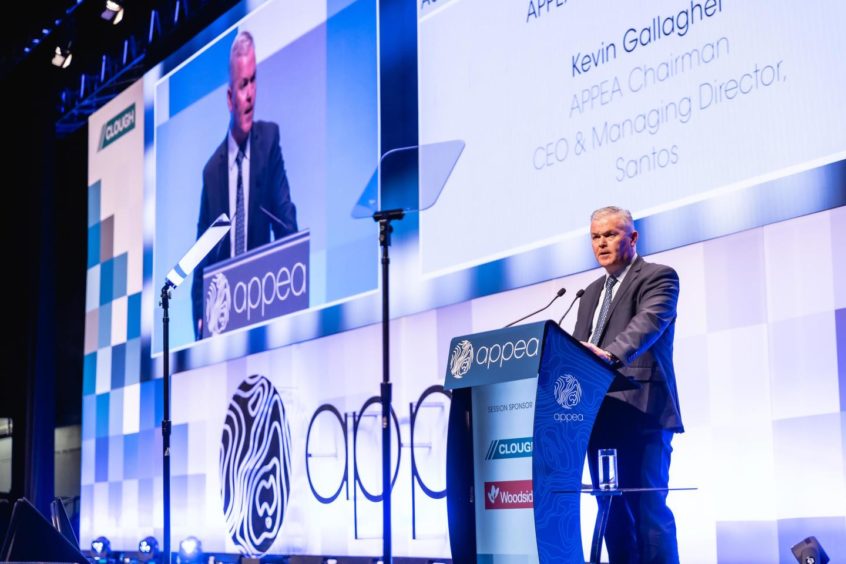
The Institute for Energy Economics and Financial Analysis (IEEFA) believes the start of work on the Santos-led Barossa liquefied natural gas (LNG) development offshore northern Australia should be suspended as the associated carbon capture and storage (CCS) scheme, proposed by the operator, remains problematic and will not cut emissions. Otherwise the CCS project should be viewed as nothing more than ‘green washing’ and a diversion while construction continues, said IEEFA.
Santos (ASX:STO) and its partners, which include Japan’s JERA and South Korea’s SK E&S, are developing Barossa, which has “twice the reservoir gas carbon dioxide (CO2) content of the equally highest currently developed Australian gas fields – Ichthys, Gorgon and Prelude,” according to IEEFA. The floating storage production and offloading (FPSO) unit for Barossa is currently being built in South Korea.
Santos plans to cut the high emissions from Barossa by injecting the CO2 into the nearly depleted Bayu Undan gas field in the Timor Sea offshore East Timor. This would involve a new Darwin harbour pipeline, which Santos is currently seeking approvals for.
“Santos now has an application for approval for a new Darwin Harbour pipeline for its Barossa gas – potentially enabling a carbon capture and storage (CCS) scheme in an attempt to reduce the very high emissions from the development,” IEEFA said in its latest report.
“But uniquely, despite the new application, Santos’ project would still actually produce more carbon dioxide emissions offshore and onshore than its production of liquefied natural gas (LNG) – even with CCS implemented successfully – making it one of the more expensive and dirtiest gas projects in the world,” claims IEEFA.
“Australia’s project approvals system doesn’t help, being based on the old colonial principle of ‘divide and rule’. The independent regulator, the National Offshore Petroleum Safety and Environmental Management Authority (NOPSEMA) which is based in Perth, WA is tasked with approving the offshore parts of an oil and gas project, and in this case, the Northern Territory Environment Protection Authority (NT EPA) based in Darwin would approve the onshore and near-shore facilities,” added IEEFA.
“Assessing the offshore and onshore LNG processing parts of the project separately for Barossa gives an incomplete picture as to the true emissions intensity of the whole Barossa project. Australia needs a comprehensive account of what a project developer wants to construct and operate on its lands and sea, particularly when the developer is exploiting domestic resources,” said IEEFA.
John Robert, the report’s author said that “adding carbon capture and storage to the Barossa development, in the way Santos apparently favours, would bring little or no reduction in emissions while adding substantial cost, delays and risk.”
“Approving bodies NOPSEMA and NT EPA should suspend the Santos Barossa project until it is reviewed as a whole and CCS is proven to work,” he said.
“If it is still to be considered for approval, this project should be required – by the relevant authorities – to build the CCS-enabling facilities no later than the gas production facilities and to prove their satisfactory operation before any export of LNG cargoes are permitted. A repeat of the Gorgon CCS debacle in Western Australia is just not acceptable,” said IEEFA.
Approval for the start of work on the Barossa gas development and Darwin LNG (DLNG) export terminal modifications should be suspended until a complete review of this “apparently now fundamentally changed project is given approval,” added IEEFA.
“Otherwise, Santos’ suggestion of a solution using CCS which fails to address the fundamental fault with the Barossa gas development should be seen as greenwashing and a diversion while construction continues,” said IEEFA.
Earlier this week East Timor-based independent think-tank La’o Hamutuk hit out at Santos’ plans to store carbon from its proposed Barossa LNG development at the Bayu Undan field in the Timor Sea by filing a submission to the Northern Territory (NT) Environmental Protection Authority (NT EPA).
The authority is seeking feedback regarding Santos’ proposal to construct and operate the Darwin Pipeline Duplication (DPD) Project, to allow gas from the Barossa gas field in the Timor Sea, to be transported to the Darwin LNG export facility. The gas pipeline would be about 100km in NT waters, duplicate a section of the existing Bayu-Undan pipeline, and include a shore crossing at Wickham Point in the Greater Darwin Area.
